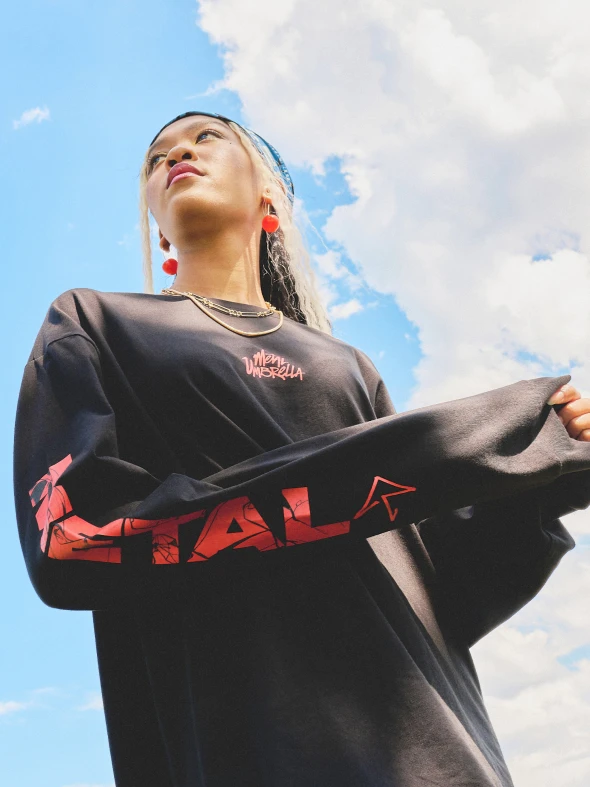How DTC Brands Can Navigate the COVID-19 Pandemic

Quick Summary Many supply chains have closed. Brands can’t fulfill orders. Customers are not placing orders, due to lack of employment. How can DTC brands survive and stay relevant during a global crisis? Focus on brand-building, communication, and long-term growth. Alter marketing spend and strategy. Optimize for the customers that are visiting your website. Consider multiple supply […]
Many supply chains have closed. Brands can’t fulfill orders. Customers are not placing orders, due to lack of employment. How can DTC brands survive and stay relevant during a global crisis?
-
Focus on brand-building, communication, and long-term growth.
-
Alter marketing spend and strategy.
-
Optimize for the customers that are visiting your website.
-
Consider multiple supply chains.
-
Turn to your agency, your partners, and your community for help.
Over the last few weeks, the situation around COVID-19 has grown exponentially. Major conferences, festivals, and events have been cancelled or postponed, including all major sporting events, SXSW, and Shopify Unite. Local restaurants and non-essentials business have been forced to close to support social distancing and prevent the spread of the virus.
DTC retailers such as Allbirds has 18 stores worldwide, while Everlane has six in the United States. These are just two of the many DTC brands who are closing their brick and mortar locations.
Of course, DTC brands will be taking much less of a financial loss than your local restaurant, since the large majority of their sales are made on their e-commerce websites. But most merchants are still taking a big hit with online sales as well. How can these DTC brands navigate the current COVID-19 crisis as well as the backlash from the struggling economy?
Double down on brand-building and communication.
DTC brands should not avoid communicating with their customers during a global crisis. There’s nothing more important than brand transparency, at times like this especially when only 34% of consumers actually trust the brands they use, while 62% of those who give trust will stay loyal (1). Avoiding the topic and continuing with business-as-usual is tone-deaf. Be honest with your customers and show them you’re aware of the situation.
I’ve seen some honest communications about asking for support from customers, addressing the situation and providing drastic discounts since many are spending less on non-essential goods. Brands such as M.Gemi have been leading with emotional communications directly from the founders. The brand has deep roots in Italy where the COVID-19 pandemic has been catastrophic.

However, it is extremely important to be realistic. Understanding that the average person will not look to your brand for support and guidance during times of crisis. That said, if you’re using your resources to support the cause, such as donating funds or creating products to support healthcare workers, communicating to your audience can go a long way. One of our clients, Mia Becar, is an Italian brand. They’ve changed communication on their website to directly address the situation as well as show their support for people impacted by the crisis.

Your brand is going through a very tough time, but we all need to remember that this will pass. Your customers want to know you’re aware of what is going on and now is the time to let them see who you are.
- Change up your communication and address the situation.
- Show your customers that there are humans behind the brand.
- Don’t be afraid to go off-brand but stay true to your tone.
Your marketing strategy and ad-spend needs attention.
Over the course of the last two weeks, I have seen ads change, frequency reduce, and some brands completely ignoring the pandemic. Of course, brands should be looking at all expenses and decide how to save on costs across the board, but your ad spend will have an ROI. Pulling back might be necessary, but more importantly, the communication and content need to be adjusted.
I’ve seen some tone-deaf ads, such as Onnit’s facebook ads, promoting their gym in Austin. How are people going to a gym that is likely closed during a global pandemic? Communication like this is not only damaging to the brand, but also a waste of marketing dollars.
We do not feel pulling back on social media ads is the best approach, but brands should be looking at what they are saying and what they are offering. Continue with brand-building ads, especially if you’re in the luxury or fashion space and your product is non-essential.
Add value with content marketing
Being present on social media raises a company’s accountability by 81% (2). Brands should also continue their content strategy and social posting, adjusting as needed. If your products and service and mission statement can relevantly contribute to a current crisis, don’t shy away from it. The key word here should be contribute! Simply telling your customers you’re there for them won’t go a long way. How are you supporting those in need or people stuck indoors?
Equal Parts is a digitally native DTC cookware brand that focuses heavily on empowering people to cook in their kitchen and spend quality time with friends and family. They’ve recently posted helpful guides on preparing food for those who have to stay at home, while at the same time tastefully promoting their brand offerings. This post is a marvelous example of adding value to consumers in a crisis that displays solidarity in a way that isn’t heavy-handed.

Conversion optimization and customer experience is more important than ever.
Perhaps you needed to pull back on your ad spend and revenue is seeing a huge hit. But there are absolutely some things you can do to increase sales and drive revenue with the little traffic you have.
Here are some quick tips to increase sales:
- Sell gift cards for future purchases with potential discounts.
- Create landing pages that focus on the products people may need during this time.
- Tailor communication and product suggestions that might make people’s lives easier while working from home.
- Focus on further simplifying your offers, which can increase purchase decisions by 96% (3)
Don’t stop selling. Just because we are in a crisis, does not mean brands should stop trying to sell products. That will only hurt the economy and see great companies go under. Many Gap customers probably don’t personally feel like Gap is in this with them. But showing them that there are humanitarians behind the brand and offering discounts can go a long way. Gap is offering 50% off everything at Gap, Banana Republic, and Old Navy and 30% off at Athleta, just for being part of their “family.” Gap is also stepping it up by using its factories to make masks, gowns, and scrubs for healthcare workers and offering free storage space for local emergency responders’ emergency supplies in their secure warehouses.

If your supply chain is halted, you’re not alone.
Many brands, including some of our own clients, have seen supply chains dry up. If your products are shipping from China you’ve undoubtedly seen a huge drop in supply over the last couple months. Even though China is ramping up production again, supply is still running drastically low for many brands.
“Supply chain disruption has moved rapidly from East to West,” said Mohammed Esa, Chief Commercial Officer, Europe of global logistics group Agility.
Logistic companies are struggling to keep up and this is having a huge impact on DTC brands who rely on overseas production. Now more than ever, brands need to have more than one source for their supply. Perhaps this will lead to more domestic production or sourcing products from numerous locations. Brands may struggle to find new suppliers ASAP, but they can utilize this time to plan for the near future.
- Create backup supply chain sources.
- Contact trade organizations and attend trade shows (when it becomes safe to) to network and make valuable contacts.
- Evaluate local retailers as an additional source.
- Source directly from manufacturers.
- Aim for faster delivery with multiple facilities operated by a 3PL.
How can DTC brands seek help during times like this?
We’re all in this together. This is the mantra many agencies, firms, brands, and businesses are saying over and over. We have to stay true to this and genuinely help each other. That doesn’t mean just saying it without acting, it means helping within reason and within your capabilities.
Brands need to focus on their customers and their employees during hard times to make sure they’re around when times are good. Many of our clients are struggling and we’re doing all we can to support them. From getting creative with billing to switching things up and offering strategy and consulting.
If your brand is struggling, look to your agency and your partners for help. If they’re really there for you, they will do all they can to help through tough times. Be honest and get creative with how you can support each other.
